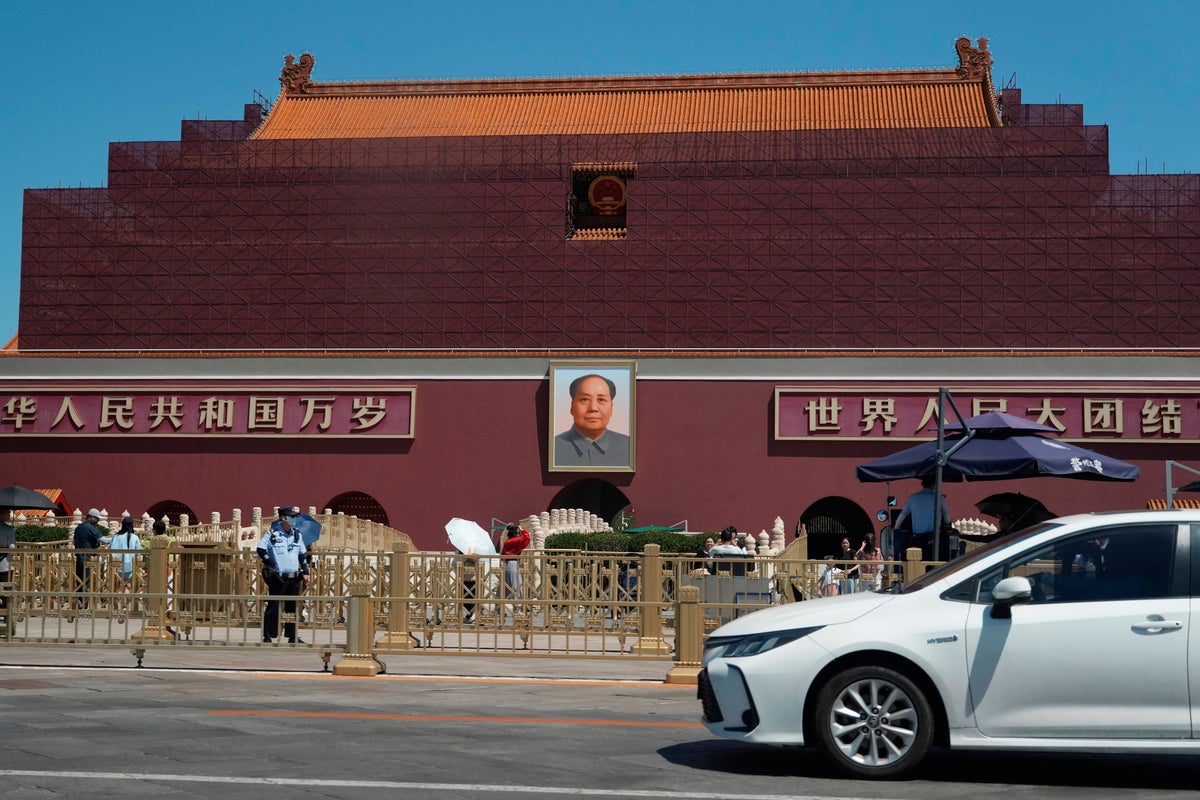
For most Chinese, the 36th anniversary of a bloody crackdown that ended pro-democracy protests passed like any other weekday. And that's just how the ruling Communist Party wants it.
Security was tight Wednesday around Beijing's Tiananmen Square, where weeks of student-led protests shook the party in 1989. Under then-leader Deng Xiaoping, the military was sent in to end the protest on the night of June 3-4. Using live ammunition, soldiers fought their way through crowds on the streets that tried to block them from reaching the square. Hundreds and possibly thousands of people were killed, including dozens of soldiers.
The party has tried, with some success, to erase what it calls the “political turmoil” of 1989 from the collective memory. It bans any public commemoration or mention of the June 4th crackdown, scrubbing references from the internet.
In recent years, that ban has been extended to Hong Kong, where a once-massive candlelight vigil is no longer permitted. A former district council member, Chan Kim-kam, said customs officers questioned her at her shop on the eve of June 4 after she advertised small white candles for sale in an Instagram post titled, “June, we don't forget.”
It is only in Taiwan, a self-governing island that is claimed by China but runs its own affairs, that large June 4 gatherings can still take place.
The crackdown reinforced Communist Party control
Tiananmen Square is a vast open space in the center of Beijing with monumental, communist-era buildings along two of its sides and the mausoleum of Mao Zedong, who founded the communist era in 1949, on the south end.
University students occupied this symbolically important site in the spring of 1989. Their calls for freedoms divided the party leadership. In retrospect, the decision to send in the troops marked a decisive turning point in the evolution of modern China, keeping the party firmly in control as it loosened economic controls.
Chinese officials have said the country’s rapid economic development since then proves the decisions made at the time were correct.
Tiananmen Mothers, a group formed by relatives of the victims, disagrees. It made an annual online appeal to the government, signed by 108 members, calling for an independent investigation into what happened on June 4, 1989, including a list of all who died. The group also demanded compensation for the families and a legal case against those responsible for the deaths.
The Canadian and German Embassies in Beijing posted an image of a candle on large screens on their properties facing the street.
Hong Kong's once outspoken populace has been cowed
A carnival showcasing Chinese food and products was held in Victoria Park, where tens of thousands of people used to gathered in the evening for a candlelight vigil on the anniversary.
Hong Kong authorities first shut down the vigil during the COVID-19 pandemic and arrested the organizers in 2021. The moves were part of a broader crackdown on dissent following monthslong anti-government protests in 2019 that turned violent and paralyzed parts of the city.
“You know, Hong Kongers have become silent lambs after 2019,” said King Ng, who was at the park on Wednesday.
Jailed vigil organizer Chow Hang-tung said she would go on a 36-hour hunger strike to remember the events of the day.
The British and Canadian consulates posted social media messages about not forgetting June 4. Hong Kong was a British colony until 1999. The American consulate posted a message from U.S. Secretary of State Marco Rubio on its website.
“The CCP actively tries to censor the facts,” Rubio said, referring to China's Communist Party, “but the world will never forget.”
Taiwan seeks support from democracies against China
Taiwan's President Lai Ching-te used the anniversary to position the island he leads on the frontline of defending democracy against authoritarianism. In a Facebook post, he drew a distinction between Taiwan's multiparty democracy and China's one-party rule.
“Authoritarian governments often choose to remain silent and forget about history, while democratic societies choose to preserve the truth and refuse to forget those who have contributed to the ideals of human rights and the dreams they embrace,” Lai wrote.
Taiwan transitioned from authoritarianism to democracy in a process that began in the late 1980s. It relies on support principally from the U.S., along with other democratic partners, to deter China from an invasion. The Communist Party says it favors peaceful reunification but doesn't renounce the use of force.
A commemoration and candlelight vigil remembering June 4 was planned for Wednesday evening. ___
Leung reported from Hong Kong.







